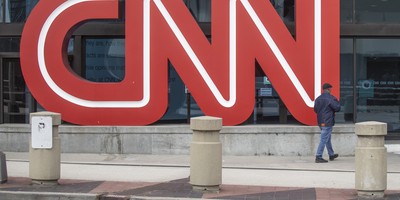Editor's Note: This article was co-authored by Danni Ondraskova and Justin Haskins.
Many people are already familiar with Uber, the highly lauded and criticized San Francisco-based company that offers its customers a car-share service through an eponymous app. Uber touts its service as a legitimate alternative to city taxis and other transportation services. Its website promises consumers the chance to “share experiences, woo the moment, and create an escape.”
Uber’s opponents—usually controlled-obsessed regulatory zealots or competing taxi companies—question the safety of Uber’s business model and point to alleged fluctuations in its service quality as signals of the service’s inherent unreliability, but any fair-minded person who has taken the time to investigate ride-sharing companies such as Uber would acknowledge the service in generally very safe and much more cost-efficient.
Uber’s meteoric ascent is no secret (or surprise). A mere five years after its inception, Uber is earning several billion dollars in annual revenue and serves 42 countries and 200 cities. The rise of car-sharing companies such as Uber and Lyft coincides with a decrease in the taxi industry’s revenue in cities where both types of transportation services are allowed to operate freely. These related trajectories beg the question of how such a fledgling company could begin to break down the long-held monopoly of the taxi industry on transportation services.
One plausible response is Uber simply capitalized on the deeply-rooted dissatisfaction of many taxi riders by offering them a cheaper, more reliable, and more comfortable means of transportation. Consequentially, customers have been returning in droves. Despite Uber’s occasional hiccups, the service is best described by its affordable fare, typically friendly and punctual drivers, and comfortable experience.
Recommended
In 2014, Business Insider compared taxi rates with Uber rates in major U.S. cities, and in the 21 cities examined, Uber beat taxi rates in 18 markets without taxi tips and in all 21 cities when even very small tips were included in the calculations. In Boston, a rider traveling 5 miles at an average speed of 30 mph would save more than $8 per trip using Uber instead of a taxi. In Los Angeles and San Diego, the savings are more than $10 per trip.
Critics of Uber and Lyft often question the safety of such loosely regulated businesses, but overall, all the data show Uber is at least as safe as most taxi companies. Crimes committed by Uber drivers on their customers, such as a San Francisco driver’s assault on passenger James Alva in 2014, are tragic and well documented. However, these incidents do not constitute evidence of Uber being less safe than other services. One can easily find examples of crimes being committed by taxi drivers.
To reduce the inevitable risk of interacting with strangers, car-sharing users can prudently apply the very same policy they use when riding public transportation and taxis: travel with a trusted friend. To hold drivers accountable, Uber relies on an anonymous user rating system, regularly inspects its driver-provided vehicles, and offers up to $1 million in insurance “for those injured by a negligent driver,” while many states mandate much less. For instance, Massachusetts requires $20,000.
Uber opponents insist that the service is operating in many cities without licenses, but the sad fact is many American cities are engaging in discriminatory practices that relegate legitimate services such as Uber to the “illegal taxicab industry.” In New York City, the medallion system reserves a limited amount of licenses for taxis. Since Uber is not a taxi service, it is illegal for the company to collect fares in the city.
Other cities refuse to grant Uber licenses despite the fact the company’s regulations on drivers and vehicles are comparable to that of most taxi companies. The grim truth is many governments refuse to legalize Uber and other car-sharing companies because of lobbying efforts by taxi companies and a desire to maintain the status quo. Profiting from an outdated taxi-dominated industry is more important to the government than letting the transportation market become competitive and benefit society through lower prices and increased service.
Uber, Lyft, and other ride-sharing companies provide many additional benefits to riders. Fares can be easily split between two people, and no cash or tips are required for Uber services. All fees are sent to a user’s credit card account after the trip, which makes payment easier than the methods allowed by most taxis. Ride-sharing apps also allow customers to track the path of approaching drivers and to order different kinds of vehicles based on their transportation needs.
Uber and other similar transportation companies offer a reliable service that helps ensure there are fewer vehicles roaming the roads, guzzling gas, and polluting our environment.
Americans everywhere should regard the emergence of this innovative service as a boon and help convince cities and governments around the world Uber is the gateway to the future of transportation and should be supported rather than opposed. In virtually every case, city or state officials that ban ride-sharing services such as Uber ultimately do so in order to prop up the failing taxi industry and appeal to special-interest groups, rather than the citizens who elected them.

























Join the conversation as a VIP Member